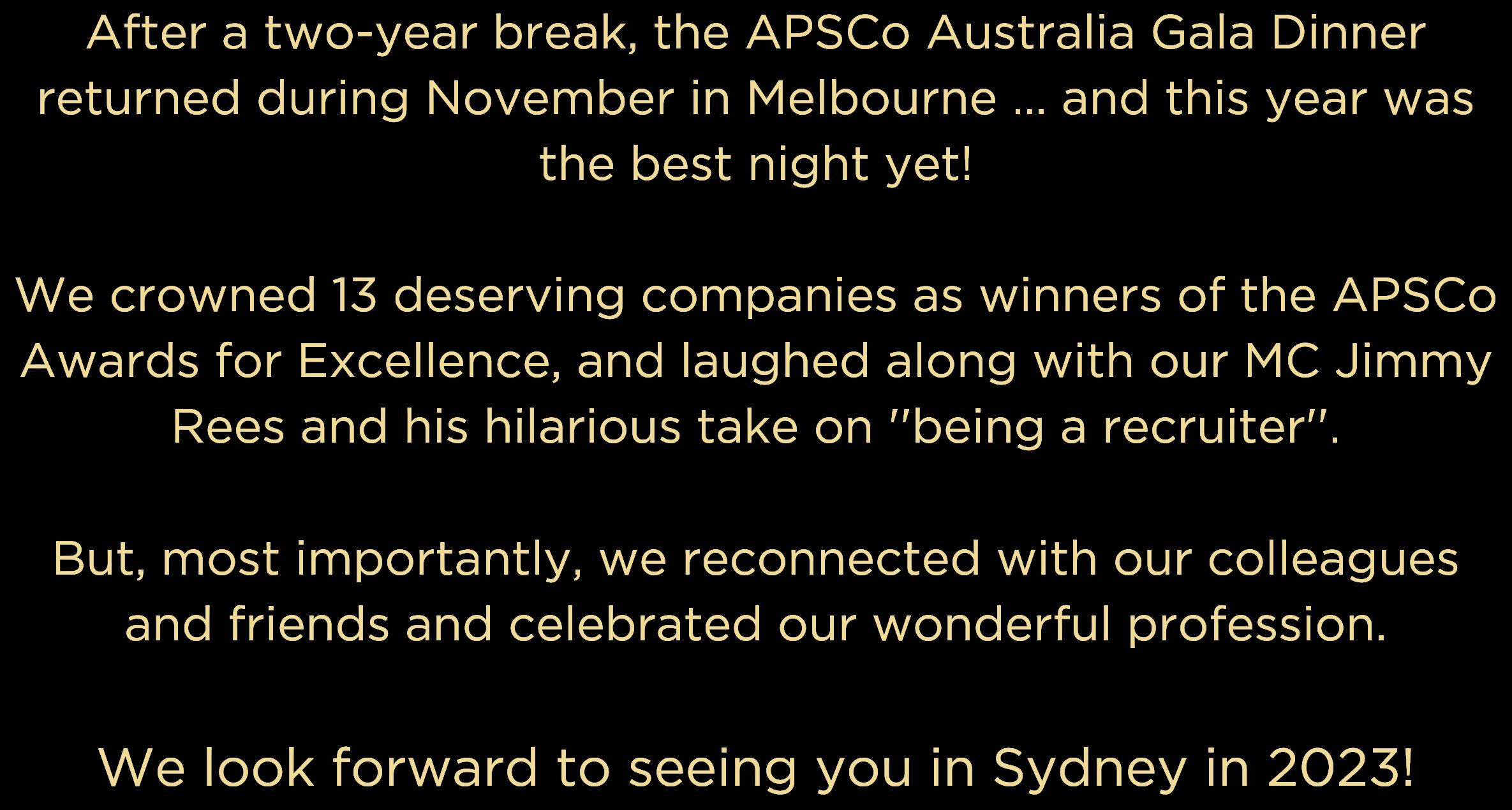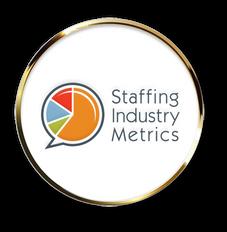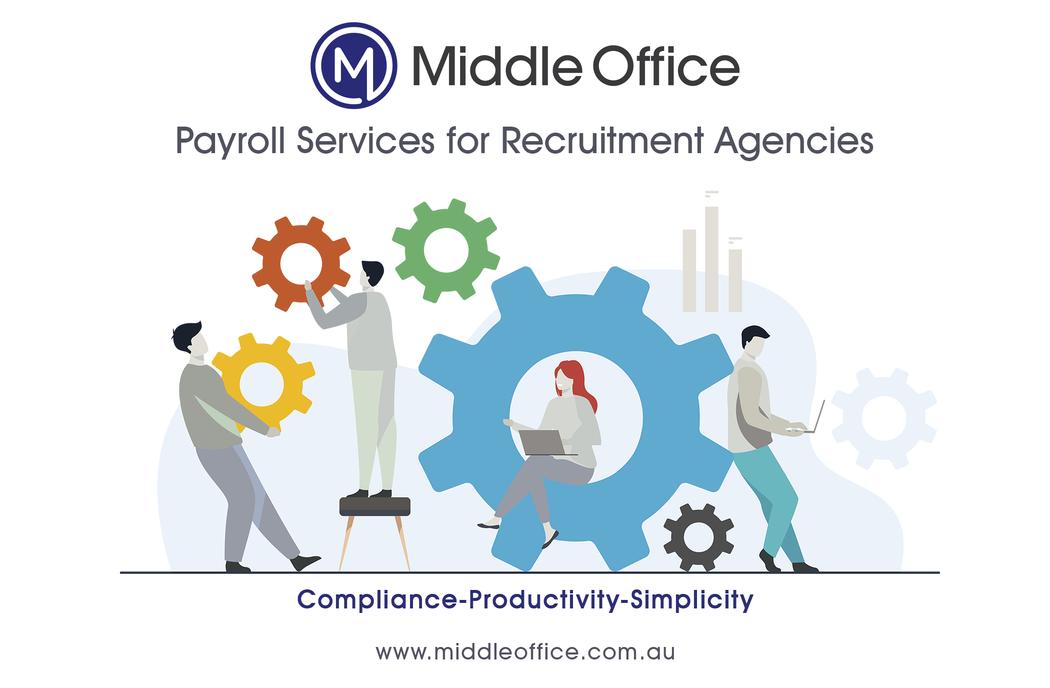RECRUITMENT&CO RECRUITMENT&CO



Summer
 Summer 2022 2022
The official publication of The Association of Professional Staffing Companies in Australia
Summer 2022 2022
The official publication of The Association of Professional Staffing Companies in Australia













 Summer 2022 2022
The official publication of The Association of Professional Staffing Companies in Australia
Summer 2022 2022
The official publication of The Association of Professional Staffing Companies in Australia









2022 has been a significant year for APSCo and indeed its Members A new Government, huge market demand, navigating remote working, talent shortages and a return to face to face meetings and travel has made for an incomparable year

I am delighted to end the year on a positive note for APSCo. We’ve achieved an impressive amount for a small Association, and I would like to acknowledge the hard work that the Secretariat consistently put in to support our Members. As many of you will have seen, our Awards this year were a huge success and a real celebration of the quality and professionalism that APSCo upholds. We’ve returned to our Member meetings in Sydney, Melbourne, Brisbane and Canberra and have plans to commence in Perth in 2023.
Perhaps of most note is our engagement of Cornerstone Group, a boutique Government Relations firm that will partner with us to lobby for recognition of professional recruitment firms and the need for delineation across legislation in the contractor space. We have already delivered submissions and participated in robust discussion with DEWR in respect of our ask.
2023 promises to be bigger again, with some exciting plans for the professional recruitment market under way I would like to extend a personal thank you to all of our Partners who help make our Association of such great value and of course to our Members for their support and loyalty once again in 2022 and of course to the APSCo Board of Directors for their ongoing commitment and input to our growing Association
I wish you all a safe and wonderful holiday season I hope everyone gets a well deserved break before the new year kicks in!

Heading into 2023, talent remains a top priority and challenge for Australian recruitment agencies. What separates the agencies that deliver an incredible experience from those that leave candidates cold?
Consistent engagement and smart use of technology, to start. Bullhorn surveyed 500 Australian temp workers on their experiences working with recruitment agencies.
Here are the top findings.
Talent choose their agency based on opportunity and reputation
Why do candidates choose one agency over another? Roughly half cite the strength of opportunity, with 34 percent specifically mentioning access to specific contracts
The other half cited positive associations with that specific agency, including those who had past positive experiences (20%) or picked an agency based on reputation (13%).
That said, close to half would not work with the same agency again even if it can provide the right jobs. Agencies must prioritise a strong talent experience defined by consistent engagement and a streamlined process
Talent want recruiters to reach out more frequently and proactively with opportunities Close to two thirds (64%) said they want to hear from recruiters at least once a week when looking for new opportunities, but less than half (47%) say their recruiter reaches out that frequently
Email is the most preferred channel for communication (48%), but talent expects recruiters to use their medium of choice. When recruiters don’t reach out via the preferred communication channel, respondents were 67 percent more likely to say they wouldn’t work with that firm again.
…Throughout the entire lifecycle
The value of consistent engagement extends beyond the hiring process: workers who report responsiveness while on assignment are 3 times as likely to consider working with their firm again
Beyond communication, every stage of the talent experience matters.
Workers who report a positive experience throughout the entire process from first contact through redeployment are 3 times more likely to work with that firm again.



Micro teams of 10 or less Lime Recruitment

Small teams of 20 or less Medacs Healthcare







Medium teams of 21 - 40 Whizdom
Large teams of 41+ Peoplebank
 Tom Sherwen, Finite Group Sapture International Defence Force Recruiting
Tom Sherwen, Finite Group Sapture International Defence Force Recruiting




















 Tom Sherwen
Lesley Horsburgh
Ann Swain
Tom Sherwen
Lesley Horsburgh
Ann Swain













































































WatchJimmy's "POV:You're aRecruiter" sketch performedlive atthe GalaDinnerhere.
























FTSE 250 recruitment company, Michael Page AUS is breaking down accessibility barriers by calling on the recruitment industry to do more to help people with disabilities to get into work.
To do this, Michael Page has partnered with Recite Me to offer a suite of customisable digital online tools to remove recruitment barriers for those with visual impairments, learning difficulties, who speak English as a second language, and neurodivergent

Established in 1976, Michael Page has grown to become one of the world’s best known and respected recruitment consultancies. Operating in 37 countries including Australia, Michael Page has taken responsibility to lead the way in providing inclusive recruitment to diversify talent pools across the globe
Michael Page CEO, Steve Ingham, is paving the way for this change within the recruitment industry This follows a survey of over 1,000 UK business leaders which highlighted that almost three quarters (74%) feel that there are barriers to hiring people with disabilities
Job seekers can access the Recite Me toolbar in action
across 3 global regions in eight markets on the Michael Page website to support those with additional needs online The customisable tools on offer include screen reading functionality, multiple reading aids, customisable styling options, and an on demand live translation feature that boasts over 100 languages including 65 text to speech.
Michael Page CEO, Steve Ingham said, “For the past six months we’ve seen job vacancies skyrocket, with many suggesting that the market is ‘candidate short’. But the fact of the matter is that there are hundreds of thousands of disabled or neurodiverse candidates who are unable to access roles due to inaccessible recruitment processes.
With most job searches taking place online, the Recite Me toolbar opens the door to diverse talent to grant everyone access to their dream career, increasing the number of candidates applying for roles
“At PageGroup, we are determined to create change Whether that’s the industry leading work our award winning DE&I team does internally, the support we give our clients through our DE&I Client Solutions team, or our new accessibility resources for businesses across the country this is a priority that runs through the very core of our business.”
In the last 12 months over 25 million web pages have been made accessible with the Recite Me toolbar If you would like more information on how your organisation can provide inclusive recruitment by using assistive technology, contact Recite Me to book a real time demonstration of their toolbar, together building a more inclusive digital world for all.
In a red hot labour market, attracting and retaining talented contractors requires speed, skill and agility. With many options available to them and businesses screaming for good people, contractors will go where the pay and conditions are good, the culture is positive, the work is interesting and the systems for onboarding and management of their contract administration are swift, polished and seamless.
Businesses that deliver on all of these factors, secure and retain talent, and develop a reputation across the labour market for being world class organisations to work for

Consequently, these organisations don’t have to do much to convince people to work for them. Their reputations do all the heavy lifting
While many businesses perform well on some of these factors, many fail in the areas of contractor onboarding and management
A contractor may enjoy working in a business that has great energy, but they are not going to persist with it if their pay is continually late or there are repeated issues with time sheets
Getting contractor management right is critical. The question is how do you get this right The answer is simple you outsource contractor management
What is outsourced contractor management?
Outsourcing is a term that is kicked around quite a bit and commonly used in industries such as accounting and banking, but the reality is that outsourced contractor management is one of the fastest growing areas of outsourcing in the world
Outsourcing contractor management simply means that contract management providers like Platinum WFM take care of onboarding, managing and paying contractors for organisations and staffing agencies Essentially, we ensure all the necessary administration and compliance is taken care of with diligence and ease so that businesses can focus on doing what they do best, growing and delivering their business
Contractors continue to work with and report to their manager within the business, but they deal with the contractor manager in relation to contactor, time sheets and pay issues.
One of the challenges in the current labour market is the speed at which things move
Contractors are in such hot demand that unless you are able to move swiftly to engage and onboard them, they get snapped up elsewhere or move on Outsourcing your contractor management activities addresses this issue
Our contract management systems and processes are so highly tuned that we can literally engage and onboard a contractor within minutes
Outsourcing literally reduces the risk of losing potential contractors by up to 90 plus percent It also significantly improves contractor retention as well, which is important for business continuity and business client relationships.
The hot labour market is placing significant pressure on organisations to keep staff and contractors happy Once a contractor is onboarded, it is essential to ensure that they are appropriately supported, and that their administrative and contractual needs are taken care of in a smooth, responsive and highly professional manner.
Contract management providers such as Platinum WFM are experts at ensuring contractors are appropriately supported
Your people are your most important assets, however they are also your most costly. It is essential that they are paid on time and there is sufficient cashflow to enable on time payment every week, fortnight or month
Contract management providers like Platinum WFM are also able to assist with solutions to ensure businesses are capable of meeting their labour costs in a timely manner
As a business we utilise, and also work with our clients to set up facilities such as Earlypay’s Invoice Finance Using the Earlypay Invoice Finance facility, businesses are paid upfront when an invoice is generated and Earlypay then ndertakes responsibility for debtor management
Invoice Finance is also ideal for businesses that are new, have a limited trading history, an ATO debt or require flexible credit history conditions.
Contract management providers are experts at making life easier for businesses when it comes to onboarding, managing and paying contractors and this includes identifying potential cashflow solutions
Outsourcing contractor management should enhance the working experience for contractors, reduce the risk to businesses and improve the reputation of organisations in the labour market
How do you choose a contractor manager. Look for a provider with cutting edge technology and industry experience The whole purpose of technology is to amplify your resources by simplifying and, where possible, automating the processes that are repeated in your business. Good tech also enables the smooth passage of information through your business, from timesheet to invoice to payroll to ATO
I was a recruiter for many years before I began developing tech solutions for our industry There are three key things to consider
Risk management: There are some unique risks to managing contractors Your outsource solution should have good governance and reporting practices built in to help you manage these risks.
A system specialist: If your team does not have the technical capacity to support your contractors across different systems,
look for an outsource solution with all Aussie support that your contractors can count on because if they can’t, their issues will simply circle back to you to solve
A dedicated administrator: If the number of contractors you manage shrinks and expands throughout the year, you may not want to employ a dedicated person to manage their needs. There are outsource options with built in contractor care, but make sure you entrust your contractors to a white label service don’t handover your assets to a third party.
Outsourcing contractor management provides increased ability to grow and scale.
It also reduces the weight of responsibility and resourcing on your own organisation
Contract management providers like Platinum WFM have the tech capability and resourcing flexibility to respond to fluctuating workload requirements with ease
We are responsive, knowledgeable, and importantly, focused on ensuring that your contractors are well managed
The Optus data breach has resulted in 2.8 million account holders having at least one form of ID stolen, including 150,000 passport numbers and 50,000 Medicare card numbers This was closely followed by a major attack on Medibank revealing health and other sensitive information We are still to see the full extent of the damage caused Many readers would have been caught up in this.
These events are a serious wake up call for all businesses to reconsider how they are managing their cybersecurity risks. Potentially, the concern is even greater for recruitment businesses
Gibert, Managing Director, Certex InternationalRecruitment companies collect many documents on candidates such as identity documents, work histories, pay slips, bank account details, and superannuation, and more. This could make recruiters a real target for cyber attacks Historically, a large candidate database has indicated a higher asset value of a recruitment business. Now, however, such a database, particularly one that is not current and active, could be a real liability
Angelene Faulk, Privacy Commissioner, said in her opening remarks for the Privacy Summit in Sydney recently “Prevention is better than cure There are three things’ organisations should do: 1 check your data holdings, 2 ensure the right security settings, and 3 delete data not required ” Valuable advice for all organisations
Penalties for a breach are now considerable. The maximum penalty for a serious or repeated breach by a body corporate will increase to whichever is the greater out of
$50 million, 30% of turnover, or three times the benefit obtained from the breach Possibly even worse is the reputational damage that could be sustained There are so many competing recruitment businesses, and whilst we all like to believe our clients are loyal, the reality is that if our reputation is damaged then the business is going to be damaged as well, as clients and candidates chose to move on to the next agency.
Possibly the biggest failure is an inadequate understanding of privacy obligations. Data protection is both a legislative responsibility and an ethical one

Compliance starts with an appropriate privacy policy, which should be meaningful, understood, and available. The policy should set out, broadly: what data is being collected; for what purpose; how it will be used; who the data may be share it with; how long the data will be held; the process of updating the data to keep it current, and what the person can do if they have a complaint
or they want to make changes to the data that's being held
Then there is the collection statement. This can be brief, but it should explain the purpose of collecting the data, and what it will be used for You don’t want to be too specific, or you may need to prepare another notice for each job, but you don’t want to be too general of the candidate may, quite reasonably, not be comfortable to hand over their personal information.
One of the most common problems is the agency retains the notice after it has been signed The individual no longer has the collection notice available to them.Perhaps this is done so that the agency holds proof the notice was provided, but this is not the best way to approach this
Another problem is the timing of handing over the notice. Ideally it should be at the time of collecting the personal information It is a transaction thanks for your information (the agency says), this is what I will do with it.
Why this is important to recruiters?
Including a notice in a contact or agreement once the placement has been decided is far too late

Of course, one of the biggest privacy problems, and the problem that could cause the greatest security risks, is holding on to the data for too long. If you no longer have a use for the data, then don’t keep it This is the point being pressed home to Optus now Data that you no longer need should be secured destroyed. Holding the information just because you may one day have a use for it is not acceptable
Collecting the data for convenience is not acceptable.
Failing to keep the data current and accurate is not acceptable
Failing to use and manage the data in a way the individual would expect you to is not acceptable
"The truth is that what has occurred over the last week has been a wakeup call for corporate Australia Cyber security is right there in the top echelon of issues which face corporate Australia and we need to be doing everything we can to make sure that protection is in place "
Prime Minister Richard MarlesA good test is to ask your self how you would like your most personal information to be used, shared and stored If you wouldn’t like it to be done that way, then reconsider how you are managing the data of others.
Check how well you are doing
Certex is proud to support many of our clients with data and privacy security. We are risk management professionals Through robust risk assessments, we can help identify and address cybersecurity hazards. Certex’s iSuite of risk management programs include iPrivacy and iCyber Please reach out to our team for more information
It’s questions like this we hear the most. “How fast should we grow?” “What should our profit be?” “How do we know if we can afford to put on new staff?”
How do you know if your numbers are ok? How will a potential buyer assess your revenue and growth? Especially your contractor margin
New staff take a while to get up to speed, some take longer than others, and a some don’t make it at all Assuming you are managing your onboarding and training well, and making sure not to let people struggle unnecessarily for too long, what should your numbers look like?
There is a rule of thumb you can use for this very thing; it’s called the rule of 40.
The rule of 40 is commonly used by subscription software companies, to work out how to rate their recurring revenue. So, it works well for agencies too. The rule of 40 states that your percentage profit and your percentage annual growth should add up to at least 40%. The bigger the number the better.
So, if your annual profit is only running at breakeven but you are growing at 40%, that’s ok If your profit is 40% but with no growth, that’s sometimes ok too. Or any combination of the two, even negative profit is ok. Probably not negative growth.
Think of it a bit like climbing in an aeroplane, once all that
Thomas Taylor Director, Middle Office
messy starting out and taking off are done, once you are in the air, you must balance speed against rate of climb. If you level off your speed should increase. The outcome of both speed and altitude is a result of power to weight ratio and efficiency.
Middle Office helps you get there
We provide contractor pay and invoicing to recruitment agencies, we do all the hard systems work for you We also provide back-office processing, weekly margin reports and monthly management reporting, right though to CFO and advisory board services.
You get to be up front in the cockpit and fly the place, we run the systems.
The most important dial on your dashboard should stay above 40%.
“You have to spend money to make money” Yes, but how much? asks Middle Office's Thomas Taylor.
I was recently asked what advice I would give to someone going into business with another person. Without hesitation I said, “Shareholders Agreement”.
You are going to put a lot of time into the plan to start a business. Every aspect of the potential business will be discussed, analysed and peer checked. You will have conversations about how you will work together, the division of responsibilities, how much you will be paid and so on
But, like most people heading off on a first date, not much though will be put into the scenarios of what might go wrong the divorce scenarios.
What if one of you changes their mind? Or you cannot agree on big decisions
The Shareholders Agreement is the mechanism for handling these situations and so much more.
Right now, there will be dozens, possibly hundreds, of recruitment agency shareholders cursing the fact that their Shareholders Agreement does not exist or is not comprehensive enough to handle the circumstances they find themselves in.
It does not work trying to create a Shareholders Agreement when dealing with an active issue that is emotive and can be business threatening.
So what should be in the Agreement?
It is designed to deal with the issues that arise during the life of a business, by determining in advance, how such issues should be dealt with.
How big decisions are made, like incurring debt, or opening a bank account, capital raising, or selling the business
How Dividends are determined
What happens if a shareholder leaves the business. Do they have to sell their shares to the other shareholders?
What happens if a shareholder dies, or is incapacitated?
 Director,
Director,
What happens if a shareholder underperforms, or breaks company policy?
What happens when there is a major disagreement? How is it resolved or mediated?
What happens to the shareholders agreement when new shareholders enter the business? Is the document robust enough to handle the changes?
Can a shareholder be forced out when the business changes?
How are shares valued? What is the value of the shares in the first few years?
If you do not have a Shareholders Agreement, or it hasn’t been reviewed for years, now is a good time to get some assistance
Post-employment restraints are clauses in an employment agreement intended to prevent former employees from engaging in a range of competitive activities after their employment ends. This includes working with competitors, and soliciting customers, suppliers, and employees of the employer to leave.

Historically, Courts have often construed restraints narrowly The two key competing interests that must be weighed up by a court are:
an employer's interests in protecting its legitimate business interests; and
an employee's right to be able to use their skills and experience to earn a living
The following cases highlights how post employment restraints operate.
McMurchy v Employsure Pty Ltd; Kumaran v Employsure Pty Ltd [2022] NSWCA 201

In these joint cases, two employees (McMurchy and Kumaran) moved to a competing company that sold a similar software product. The Court of Appeal found that a nine month restraint period was reasonable for McMurchy, but not Kumaran. Given McMurchy's seniority and knowledge in the company, Employsure had a 'legitimate protectable interest' in its 'highly confidential' materials
Conversely, Kumaran had a low-level position in the company
This shows that an employee's seniority (and therefore their level of access to confidential materials and intellectual property) can affect the level of risk to an employer's business.
We strongly recommend that employers seek legal advice in the restraint drafting process. This also includes seeking legal advice when updating restraints as employees are promoted. It is all too common that a clause that was originally drafted by a lawyer has been rendered ineffective through later amendments made without consulting a lawyer.
Employers should remind exiting employees of their post employment obligations, including any restraints, as part of the off boarding process
p prepared a comprehensive employee off boarding checklist. Please contact a member of our team for further information
If there are concerns that a potential employee may be subject to a restraint that prevents them from working with you, legal advice should be sought regarding the enforceability of the restraint
The Workplace Advisory and Disputes team at Gadens regularly provides advice about employment contracts and post employment restraints and is able to assist you with any queries
While job postings remain elevated, employment gains are becoming increasingly difficult. Australia’s unemployment rate is now so low that further improvement will prove challenging.
By Callam PickeringAustralian job postings remain elevated but have fallen slightly in each of the past three months.
Major labour market metrics such as employment growth and the unemployment rate have been unchanged in recent months
The disconnect between slow employment growth and near record job vacancies points towards increased difficulty filling these roles
This month’s labour market update focuses on the ongoing strength in Australian job postings and the recent slowdown in employment growth as labour market conditions tighten.
Australian job postings no longer rising
While concerns around high inflation and rising interest rates continue to build, the demand for workers remained elevated throughout September. Australian employers are clearly still optimistic about economic conditions and outlook for their respective businesses
By the end of September, job postings on Indeed were tracking 123% ahead of their level on February 1, 2020, our pre pandemic baseline, after adjusting for seasonal trends.
Postings have fallen in each of the past three months down 0 4% (July), 0 3% (August) and now 1 0% (September) but only to a small degree
Australian postings remain high by international standards, with growth well above the US, UK and Canada. While recruitment has been strong in each of these countries, Australia has consistently outperformed with our recovery beginning earlier and remaining stronger despite repeated COVID 19 lockdowns.
Postings in New South Wales fell 1.9% in September contributing the most to the national decline – while they were down 3 1% in Western Australia and 2 4% in South Australia In fact, postings fell in each of the five mainland states, with only Tasmania and the Northern Territory bucking the national trend.
Nevertheless, there remains a lot of jobs available across the country, with postings in all but two regions South
Callam Pickering, Senior Economist, Indeed
Australia and the ACT more than double pre pandemic levels
Over the past three months, job postings have grown strongly in occupations such as agriculture & forestry (+31.5%), construction (+17.3%), medical information (+17.1%), architecture (+15.8%) and education (+15 6%)
By comparison, there are a number of occupations where demand for workers has recently eased There are 21 7% fewer jobs in veterinary medicine than there were three months ago. Postings for medical technicians are down roughly 20%, while jobs in mathematics ( 17.2%), logistic support ( 17 0%) and food preparation ( 15 9%) also fell considerably
It is, however, important to remember that while postings have fallen in some occupations, they have typically done so from a very high level. For example, postings for medical technicians might have fallen 20% over the past three months but there are still almost twice as many postings as there were before the pandemic began Or cleaning & sanitation postings, which have fallen recently but are still four times higher than they were on February 1, 2020.
Table (left) titled “Change in Australian job postings” Indeed compared the percent change in AU job postings between June 30, 2022, and September 30, 2022 across various occupational categories Agriculture & forestry and construction have experienced the strongest growth over the past three months.


Job vacancies are high but employment isn’t growing
Australian employment growth has slowed considerably in recent months, despite a near record number of job vacancies, highlighting how challenging filling these roles have become as labour market conditions tighten Australian employment is unchanged over the past three months, with a variety of labour market metrics, such as the unemployment rate and participation rate, also unchanged over that period. It’s in stark contrast to the rapid employment growth observed throughout the first half of the year
By comparison, there are 471,000 job vacancies across Australia more than twice as many as before the pandemic. Employers clearly want more staff but employment isn’t rising.
This speaks to the growing skill and talent shortages across the country and the possible mismatch between the new jobs being created and the skills and experience of those not currently employed.
Many occupations have significant barriers to employment, whether that be formal qualifications or even experience thresholds
That’s certainly true in industries such as healthcare & social assistance and professional services, which have the highest and fourth highest number of job vacancies Other industries, such as accommodation & food services and retail trade, have few barriers to employment but tend to favour workers under the age of 35
If the Australian labour market tightens further in the near term, it may require employers to lower expectations around qualifications or experience for some roles.
Broadening the candidate pool could potentially help bring more people into the labour force and help deal with the apparent mismatch between what employers want and what those without a job can provide
Right now though, it certainly feels as though Australia has reached full employment and the contrast between employment growth and job vacancies certainly indicates that any further tightening of the labour market will be difficult to achieve
Line graph titled “Australian employment growth, 3 month percentage change, seasonally adjusted” With a vertical axis ranging from 4 to 4 and a horizontal axis from Jan 21 to Oct 22, the graph shows minimal change in Australia’s numbers over the past three months, and a slight decrease from the Jan 21 numbers

Bar graph titled “Australian job vacancies, Share of total job vacancies (%), August 2022” With a horizontal axis ranging from 0 to 20, this graph shows the job vacancies for various industries, with Health care & social assistance with the highest number of vacancies, and the lowest number of vacancies in the Elecricity, gas, water & waste sectors.

All posting figures in this article are derived from seasonally adjusted job postings
We seasonally adjust each series based on historical patterns in 2017, 2018 and 2019
Each series, including the national trend, occupational sectors and sub national geographics is seasonally adjusted separately. We adopted this methodology in January 2021
The national and regional analysis is based on the percentage change in job postings on Indeed’s Australia site since February 1, 2020, our pre pandemic baseline
The number of job postings on Indeed com, whether related to paid or unpaid job solicitations, is not indicative of potential revenue or earnings of Indeed, which comprises a significant percentage of the HR Technology segment of its parent company, Recruit Holdings Co , Ltd
Job posting numbers are provided for information purposes only and should not be viewed as an indicator of performance of Indeed or Recruit
Please refer to the Recruit Holdings investor relations website and regulatory filings in Japan for more detailed information on revenue generation by Recruit’s HR Technology segment.
The data from the Australian Bureau of Statistics comes from the Labour Force Survey and the Job Vacancies report
The Fair Work Commission (FWC) and the Fair Work Ombudsman (FWO), two independent Australian government organisations dedicated to regulating Australia’s workplace relations systems, have recently released their latest annual reports for the years 2021 22. We have set out some of the major takeaways from the two reports for this financial year as follows
The FWC dealt with 34,122 applications lodged in 2021 22. The most common application types were unfair dismissal applications (38% of total applications), general protections involving dismissal applications (15% of total applications), and enterprise agreement approval applications (13% of total applications), which reflected trends in previous years.
The FWC has reduced median enterprise agreement approval times to 15 days, whereas agreements without undertakings won approval in 12 days
The FWC received 29 applications seeking orders to stop sexual harassment at work
Since the jurisdiction commenced, the Commission has issued 4 decisions finalising applications for an order to stop sexual harassment or both bullying and sexual harassment. In one decision, the application was dismissed as incomplete
In the three other cases, the Commission dismissed the applications on the basis that an order was not necessary to prevent future harm.
Most applications were discontinued early in the case management process. The remainder of the applications were resolved or discontinued after a conference before a Commission Member.
31 applications concerning casual conversion were lodged
The Commission issued one decision dismissing the application on jurisdictional grounds, with the Commission finding that the employer was not obliged to offer the employee casual conversion
The other applications were either resolved through conciliation or discontinued
The FWO initiated 137 cases in 2021 22, up 80% from the previous year and exceeding its target of 65-75 The Ombudsman recovered more than $532 million for 384,805 people, which was 2 5 times higher than the previous financial year.
In 2020 the FWO established a dedicated Large Corporates branch to support specialised investigations into corporate sector underpayments In 2021 22 nearly $279 million was returned to more than 267,000
Kim Hodge Partner, Squire Patton Boggs
underpaid employees from large corporate employers, more than 6 times the amount returned in the previous financial year Of the amount recovered, 68% was self disclosed
The FWO’s targeted compliance work, utilising intelligence from a range of sources to target employers where they suspect non-compliance with workplace laws (including surprise audits) recovered more than $108 million for 20,267 underpaid employees.
810 targeted compliance activities were initiated, and most contraventions related to:
underpayment of hourly rate failure to correctly pay weekend penalty rates failure to correctly pay casual loading penalty rates pay slip and record keeping contraventions.
The university sector has been added to the FWO’s priorities, with the FWO taking high-level enforcement action against a number of universities next financial year and urges all universities to prioritise their compliance.
Failure to ‘assign and align’ the right people and principles to any implementation project can lead to a devastating breakdown and you could be left with a system that your team doesn’t want, doesn’t understand, or doesn’t know how to use, Sylvia Foster, Director of Professional Services at FastTrack explains.

Achieving successful adoption of new technology is not always easy Typically staffing agencies undertake software implementation projects when aspects of business operations reach a critical juncture or are already on life support.
Therefore, when the implementation of new software has the ability to fundamentally change how an organisation conducts their daily business, it is paramount that the exercise is taken seriously and executed successfully. Don’t forget, we are talking about activities that will be incorporated into the daily lives of your employees, clients, and candidates, and will fundamentally connect them to your business for better or worse
Identify a team of heroes
Staffing businesses of all sizes should commence their transformation journey by empowering a ‘team of heroes’ led by a strong project owner. This team must be passionate about making the project a success, able to zero in on your core needs, and know how to make your business better than it is today!
Not paying proper attention to employees’ needs during technology implementations is a common mistake and can significantly decrease employee adoption and your overall chances of success.
Sure, implementing a new solution is an opportunity for you to think holistically about your business but it can cause anxiety and role upheaval for some Ensure successful internal change management by creating synergy and connectivity between your organisational objectives and your employees’ personal process changes.
People might know that the systems implemented a decade ago are not scalable and flexible enough to handle modern day demands, but this does not stop the possibility of separation anxiety caused by having to let go of current processes. If employees embrace and adopt changes required by the initiative, you will greatly increase your organisation’s ability to reap the benefits of change
Sylvia Foster Director of Professional Services, FastTrackDeveloping and applying a change management framework to your project implementation process is very important, as is ongoing communication within your organisation around the reasons for, and importance of, the change in software.
As such, mastering internal change, and subsequent training across multiple branches or divisions can impact the successful adoption of any software into your organisation
It is important to ensure that all implementation project team members are sufficiently engaged, trained, and equipped to roll out the technology across your business, and to provide support once the project is complete
Ultimately, the goal is to build an environment that stimulates a smooth and positive solution transition one in which employees look to be advocates rather than resisters. Proper education and training of your end users is essential Ensure your employees are equipped with all the necessary knowledge and skills and they will be your agents for change.
